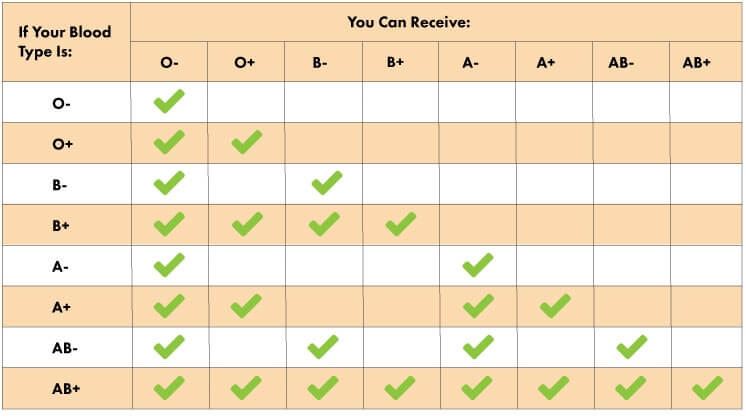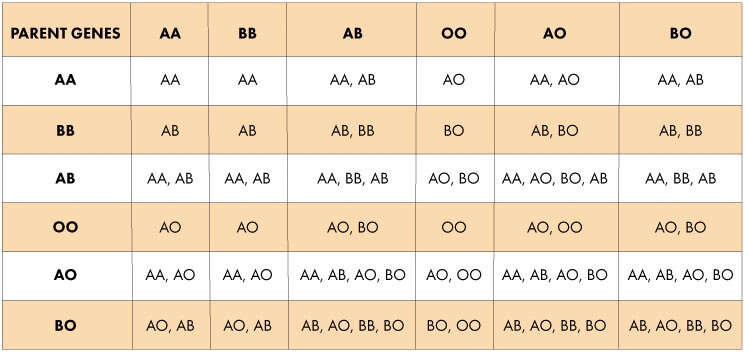Human beings can have one of four primary blood types: A, B, AB, and O. O negative types work as universal donors, while AB positive types can accept transfusions of any blood. One way to find out if you’re related by comparing your blood types.
Frequency of Blood Types in U.S.
- O Positive – 38%
- O Negative – 7%
- A Positive – 34%
- A Negative – 6%
- B Positive – 9%
- AB Positive – 3%
- AB Negative – 1%
Compatibility of Blood Types
ABO type blood gets determined due to the absence or presence of A or B antigens on red blood cells. For example, someone with an A type blood possesses only the A antigen on their cells. B blood types have B antigens, while AB has both and O has neither. A person develops antibodies for the antigens they lack by the time they reach 6 months of age. This means that someone with an A blood type will develop antibodies against B blood types, and cannot receive transfusions of B type blood. Because of this, all facilities which offer blood transfusions must keep stock of all types.
Inheritance and Blood
Blood Type
Everyone has either A, B, AB, or O type blood. A person’s type of blood also gets accompanied with an Rh factor of positive or negative. As with physical traits, parental genetics determines both blood type and Rh factor. Each parents donates one of two blood genes to the child. For example, if one parent donates an O gene, and the other donates an A gene, the A wins out to provide the child with A type blood. O type blood only becomes possible when both parents provide an O gene.
- AA = A Blood Type
- BB = B Blood Type
- OO = O Blood Type
- AO = A Blood Type
- BO = B Blood Type
- AB = AB Blood Type
Rh Factor
The Rh factor of blood is merely a protein located on the outer layer of red blood cells. Red blood cells that have this protein become positive, while those that lack it become negative. As with blood types themselves, a person inherits their Rh factor from the parents. When paired together, the positive gene dominates the negative.
- Neg/Neg = Negative Rh
- Neg/Pos = Positive Rh
- Pos/Pos = Positive Rh





